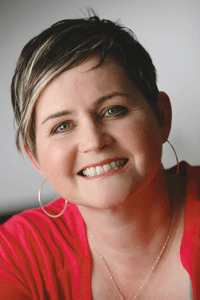What our guidebook didn’t tell us about being out of the closet in Egypt
By: Abby Dees/Special for TRT–
Nearly 3500 years ago, the female pharaoh, Hatshepsut, ruled Egypt. A powerful queen, she appears in temple carvings in a kind of ancient drag, with broad chest and false beard, and trappings more typical of a king. Historians say she did this only as a necessary political tactic. In her tomb, she was found alongside two other female mummies. No one knows who they were or why they were there.
While looking down at her beef-jerky-ish face in the mummy room of Cairo’s Egyptian Museum, my partner and I listened as our guide recited this accepted account of Hatshepsut. It didn’t ring true to us. Perhaps she was so butch because she liked it. If those reality show lesbians can go all James Dean, why not a pharaoh? And maybe those other women were in fact her lovers. The expanded possibilities seem to have occurred to no one.
Such was our introduction to Egypt this past December.
We try to travel to new places as often as we can, eager to discover other cultures and get a different perspective on our lives at home. Whether we’re on a campy pilgrimage to Dollywood or off to where our phrase books offer no help for the correct pronunciation of “Hello,” at some point we always have to decide exactly how out we’re prepared to be on our journey. I don’t like doing it, but we’d be stupid not to. It is, first of all, a matter of safety in an unfamiliar culture. Second, it’s important to know how alien you’re willing to be in the eyes of others.
If you think this is merely internalized homophobia, I wouldn’t automatically disagree with you. We traveled through Egypt, perpetually unclear about whether we were being respectful or just chicken by demoting ourselves to “roommates” – though sharing a king-sized bed. In most Muslim countries, homosexuality is forbidden. We were at an instant disadvantage, not knowing what this meant on a practical, daily basis, though I felt certain, as I do in most conservative places, that being gracious and not deliberately freaking out the camels is always a good baseline of conduct. But time after time, after we met kind, effusively welcoming Egyptians – this is always who you meet once you get away from the aggressive souvenir hawkers – and then said our goodbyes, we wondered if we had lost another opportunity to plant a seed of understanding in Egypt, just because we chose the closet.
While men walked freely arm-in-arm, talking passionately about everything, I knew from my guidebooks that this was never more than platonic. However accurate my guidebook is on this point, there were no signs of an LGBT community anywhere. (It is lovely, by the way, to see straight men warmly bonding like this, but that is a topic for another day.) Traditional expectations run so deep that when we told people that we had no children, they almost burst into tears of despair. I couldn’t imagine adding, “Well, if the right sperm donor comes along…”
When I think of how people come to be enlightened about LGBT issues, I picture a staircase with manageable steps. I don’t expect anyone to skip from floor to floor, but instead, I try to meet them where they are and help them spot where to go next. I reserve my Lesbian Avenger wrath only for people who should know better by now (see my column on Joel Osteen, for example).
In Egypt, though, we couldn’t figure out where that next reachable step was. The culture is deep and inscrutable to a couple of tourist newbies, and perhaps – I’ll concede – we were scared to look like freaks. It didn’t seem at the time that we might have been that next step and that all we had to do was exactly what we do at home: proceed openly with our lives, apologize for nothing, and be nice.
Meanwhile, LGBT Egyptians are still in danger, perpetuated by countless otherwise well-meaning people. Perhaps even some of the ones who were so welcoming to us. We didn’t plant any new seeds there. Maybe next time, we’ll suggest that Hatshepsut enjoyed ruling with a swagger. Who knows where that conversation could go.
* Abby is a civil rights attorney-turned-author who has been in the LGBT rights trenches for 25+ years. Whether examining our community’s latest legal battles or the delicate etiquette of coming out to evangelicals, she always finds humor and compassion in even the most challenging situations. She is a busy presenter on diversity issues as well as the author of Queer Questions Straight Talk. She can be reached through her website: queerquestionsstraighttalk.com








